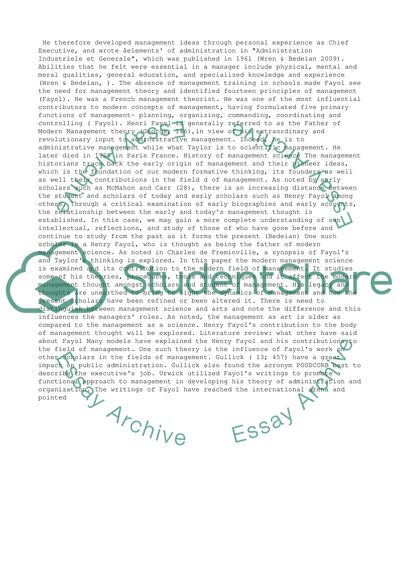Cite this document
(“Henry Fayols Legacy And Contribution To The Management Science Assignment”, n.d.)
Retrieved from https://studentshare.org/management/1394381-henry-fayols-legacy-and-contribution-to-the-management-science
Retrieved from https://studentshare.org/management/1394381-henry-fayols-legacy-and-contribution-to-the-management-science
(Henry Fayols Legacy And Contribution To The Management Science Assignment)
https://studentshare.org/management/1394381-henry-fayols-legacy-and-contribution-to-the-management-science.
https://studentshare.org/management/1394381-henry-fayols-legacy-and-contribution-to-the-management-science.
“Henry Fayols Legacy And Contribution To The Management Science Assignment”, n.d. https://studentshare.org/management/1394381-henry-fayols-legacy-and-contribution-to-the-management-science.


